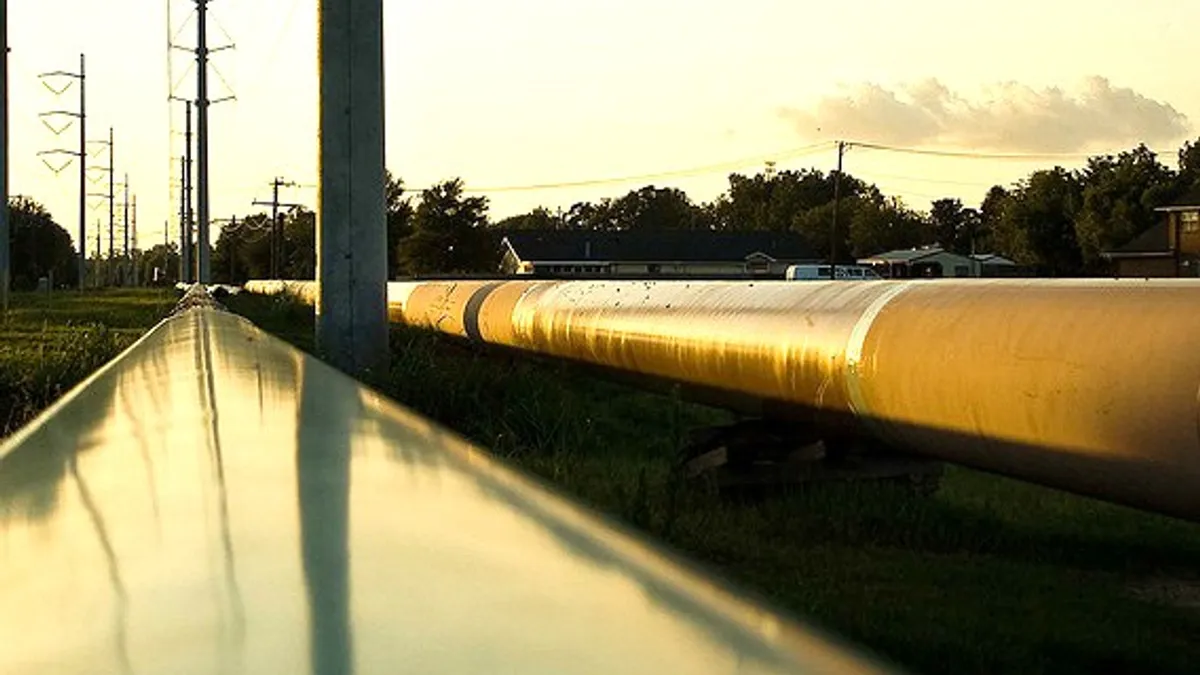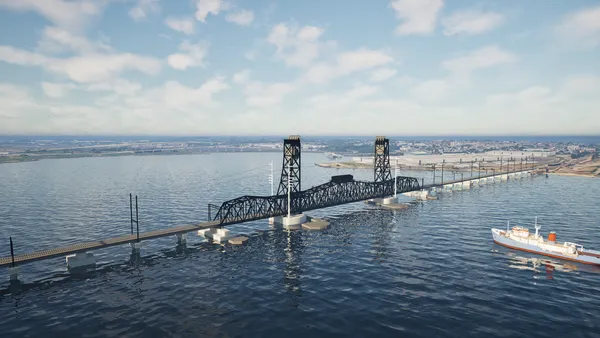Dive Brief:
- Both the $4.6 billion Mountain Valley Pipeline and $7 billion Atlantic Coast Pipeline suffered significant legal setbacks in Virginia last week, with the state filing suit against Mountain Valley and Atlantic Coast officials halting construction in the wake of more legal questions around its permit.
- Virginia Attorney General Mark Herring’s complaint against Mountain Valley alleges that the company did not comply with state environmental laws and regulations in several counties during pipeline construction and did not control sediment and stormwater runoff, which negatively impacted waterways and roads. Virginia Department of Environmental Quality inspectors, Herring’s office said, found more than 300 Mountain Valley violations related to the pipeline between June and Mid-November of this year. Formal charges in the suit include failure to maintain access roads, keep sediment off of rights-of-way and maintain and repair erosion and sediment control structures.
- The U.S. Court of Appeals for the Fourth Circuit stayed a permit, also known as a Biological Opinion and Incidental Take Statement, for the Atlantic Coast Pipeline on Friday as well, granting environmentalists’ motion against Atlantic Coast and the U.S. Fish and Wildlife Commission, which issued the permit in question. This is the same court that, in August, vacated the original permit, temporarily shutting construction down, according to Appalachian Voices. Pipeline owner Dominion Energy filed an emergency motion with the appeals court asking for a clarification on the order and also filed a notice with the Federal Energy Regulatory Commission that it was halting construction once again.
Dive Insight:
In August, both the Mountain Valley and Atlantic Coast incurred significant costs when the courts voided their permits, forcing construction work to stop. Mountain Valley officials said the stoppage added about $500 million to the project’s price tag, while Atlantic Coast booked about the same. The last time construction stopped on the project, Atlantic Coast kept its welders on the payroll so that they would not be hired away in such a tight, local labor market.
Last month, in another decision in favor of environmentalists, Montana U.S. District Court Judge Brian Morris vacated the record of decision for the multi-billion Keystone XL Pipeline, which would run from Canada to Nebraska. This decision has temporarily stopped construction until the U.S. Department of State submits a supplement to its initial environmental review that adequately considers the pipeline’s potential negative effects on the surrounding environment and culture.
Morris found that owner TransCanada failed to consider possible alternatives, ignored public input, used outdated information and did not appropriately consider climate impact and failed to take into consideration the impact.












